TOURISM BAROMETRER: Cultural lure
Sofia Echo Com, 02.05.2005
BULGARIA is preparing to place higher bets on culture as a way of attracting foreign tourists. Culture and Tourism Minister Nina Chilova said on April 21 that Bulgaria’s tourism policy emphasised keeping up the pace in seaside and winter tourism, and developing and marketing cultural tourism. Sight-seeing tourism, rural tourism, wine tourism, ecotourism, and other new tourist products would also be on the menu offered to holiday makers from all over the world. Chilova was speaking in Veliko Turnovo, at the opening of the second Cultural Tourism National Travel Market. She said that Bulgaria could be attractive not only for its unique cultural landmarks, for its architectural and archaeological heritage, but also for its abundant talents in music, dance and visual arts. This would not only provoke culture to seek modern forms of presentation, but would also diversify the tourist product, lending it a new quality and attracting a new segment of the foreign tourist market, Chilova said. A total of 160 representatives of tour operators, municipalities, nongovernmental organisations and arts and crafts associations participated in the Cultural Tourism National Travel Market. Representatives of France, Macedonia, Romania, Montenegro, Serbia, Bulgaria and Brussels took part in an international conference on Cultural and Historical Heritage and Tourism, organised by the National French Association of Historic Cities as part of the event. The forum was organised on the initiative of Veliko Turnovo Municipality and the Bulgarian Hotel and Restaurant Association jointly with the National Agency on Tourism. Modern global trends in the sector give priority to cultural tourism, which generates more revenue than mountain and sea tourism, said the chairman of the Bulgarian Hotel and Restaurant Association, Blagoy Ragin. In 2004, cultural tourism provided 12 per cent of total tourism revenue in Bulgaria. It is in the name of tourism that the Government decided on April 22 to ban further construction on Vitosha Mountain, which is one of the main leisure attractions of the capital Sofia. Furthermore, every visitor to Vitosha’s slopes who arrives by car, should have to pay to do so, a Vitosha Park Development Plan adopted by the Cabinet envisages. The decision to introduce fees now rests with Sofia Municipality. Placing barrier checkpoints and guards at the foot of the mountain is also part of the plan. Funds raised through the collection of the fees will be used for repairing the mountain roads, which are in a poor state. Vehicles will be strictly forbidden to leave the roads. Recently, drivers of high-accessibility vehicles have been using the cart-tracks and even the meadows as shortcuts. Off-road races, which have been gaining more and more popularity, will also be prohibited. The plan also provides for digging tunnels through the south sides of the mountain and launching the construction of the so-called Great South Ring Arc, which will connect the Trakia highway at Ihtiman with the Sofia-Kulata road. However, in order not to disrupt the natural migration of animals, the plan provides for the building of at least four road tunnels or bridges. It also encourages the breeding of game to be released in the woods on maturity. All stray dogs roaming Vitosha will have to be removed from there within the next two years. While Vitosha remains an attraction mainly for Sofians, other mountain resorts’ further development may be bringing good news to foreign tourists. A commission appointed by the Government gave the green light on April 22 to the construction of a ski resort bordering the Rila Mountain National Park about 60 km south of Sofia at an estimated cost of at least 160 million euro. The “Super Borovets” project, to be located near the existing resort of Borovets, will include golf courses, recreational parks, water parks, hotels, and parking lots. The Enviroment Ministry said that the commission had recommended a plan for building the resort that would cause minimum harm to the Rila National Park. Environment Minister Dolores Arsenova is to decide whether to endorse the plan by May 7. The plan also needs the approval of the Regional Development Ministry to go before the Cabinet. The country hopes the project will be the centrepiece of its bid to host the 2014 Winter Olympics. see source
 Member of:
Member of:


















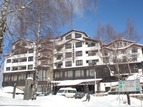
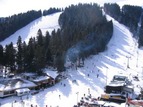


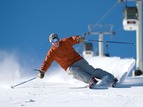
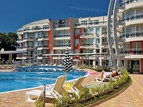
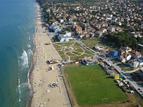


 Touroperator
Touroperator
